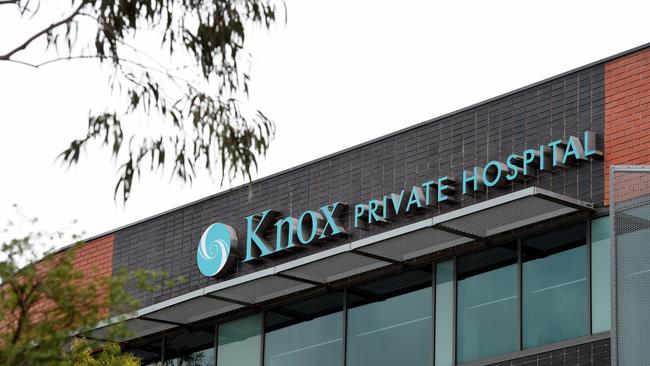
Healthscope’s lenders may take a year to sell its hospitals, say sources, with financiers holding out hope the government will force insurance firms to the negotiating table to provide more funding for their services.
DataRoom understands Australia’s top four banks which are lenders to Healthscope have committed to providing Healthscope with the breathing space it needs to iron out its problems.
It comes as administrator KordaMentha holds a creditors meeting in the coming days — Healthscope has only two creditors owed money to the insolvent parent company, and both are lenders.
The hope is that by renegotiating insurance contracts, rents and with lower debt repayment costs, it could add as much as $100m to Healthscope’s bottom line.
The interest payments are understood to amount to about $30m per quarter.
But, insolvency sources say there had earlier been tensions starting to build between the original financiers to the company and the newcomers — aggressive hedge funds which snapped up debt at about 40c in the dollar.
While the distressed debt funds, which in this case include Polus Capital Management, Canyon Partners and Elliott Management, would want the best financial outcome, most expect they would be uncomfortable with a prolonged and drawn out sale process which will see the bill for fees from McGrath Nicol and administrator KordaMentha continue to climb, eating into their hope for return on investment.
DataRoom understands Polus, owed about $300m, was eager to put Healthscope into receivership, as the move would place it in the driver’s seat.
It wanted to embark on a debt for equity swap — something regulated banks are not permitted to do.
But, anticipating how things were about to play out, the Australian banks stepped in and instead backed a receivership plan as part of a vote held last week, as reported at the time by DataRoom.
More clarity on Healthscope’s future is expected to be known in the coming days.
Australia’s top four banks within the lending syndicate have signalled a willingness to be patient with Healthscope.
While lenders and receivers have played down the likelihood any hospitals would close, industry operatives take a different view, saying closures of some of its 37 facilities will be inevitable.
But, the closures may take about a year to happen as a clearer picture emerges.
Even with cheaper rents, no interest payments and better terms with health insurers, operators say they still do not believe it will be enough to save some of the Healthscope hospitals from closure, because they were also lacking patients and staff, particularly in mental health facilities.
One health insurance expert played down the likelihood of government introducing legislation to force insurers to contribute more funding to the private hospital industry, despite the level of distress among operators being widespread.
They said while some hospitals did shut, other facilities, including day surgeries, had also opened and hospitals in areas with more population growth or were better fit for purpose.
Healthscope was placed into receivership on Monday through McGrathNicol with about $1.6bn owing to 20-odd lenders after private equity owner Brookfield had earlier distanced itself from the business.
Hurting the healthcare provider was high rents after Brookfield sold its properties for $2bn when it purchased the country’s private hospital operator for $4.4bn in 2019 and promised high returns.
Also, higher staff costs and limited increases in payment for services by health insurers have had a major impact as the pandemic took its toll on the business.




To join the conversation, please log in. Don't have an account? Register
Join the conversation, you are commenting as Logout